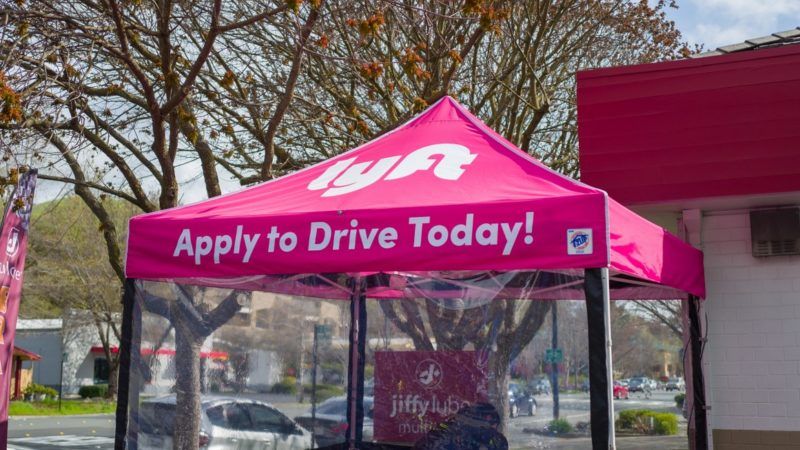California's Job-Killing A.B. 5 Scaled Back, but Only for Some Professions
Rideshare drivers and delivery people are still going to have to beg voters to let them work.

The California law that devastated the livelihoods of freelance and contract workers across the state hasn't been repealed, but it has been significantly weakened.
Right before Labor Day weekend, Gov. Gavin Newsom signed into law Assembly Bill (A.B.) 2257, written by Democratic Assembly Member Lorena Gonzalez, adding many occupational exemptions to the now-infamous A.B. 5.
A.B. 5, passed in 2019, attempted to codify who in the state was exempt from state laws mandating who counts as an "employee" of a company and what benefits the company must provide them. It controls who is permitted to be a freelance or contract worker. And Gonzalez wrote her initial bill to be extremely restrictive, threatening to wreck the state's entire freelance economy because she and her union backers wanted to go after massive rideshare companies like Uber and Lyft.
Gonzalez's bill didn't stop with rideshare drivers. It was a wild spray of buckshot that hit everybody from freelance journalists to photographers to translators and transcriptionists. A judge ruled back in January that truckers were exempt from the law. California's many freelance writers tried to get Gonzalez to understand that the law was hurting them and causing them to lose work but she was insistent that "these were never good jobs," deliberately oblivious or uncaring of the reality of how many industries work. In her mind, the only reason people didn't have traditional jobs with state-mandated benefits (and union memberships) was because selfish employers were taking advantage of them. In reality, many people enjoy the flexibility of freelance work and depend on multiple sources of income, and it's often extremely unrealistic to expect that every business can afford to convert all of its freelancers and contractors to employee status.
But it appears now that Gonzalez has relented to most of the louder voices. A.B. 2257 exempts freelance writers, journalists, photographers, and editors from A.B. 5's restrictions, along with artists, musicians, translators, some landscapers, some consultants, some independent workers in real estate and insurance, and a few other professions.
Note the absence of rideshare drivers and delivery people from this list. Of course they wouldn't be in this bill. The entire point of A.B. 5 was to kill the rideshare industry in California, or at least drive the costs so high that they can't really compete against the taxi industry or undermine labor organizers. Gonzalez owes her political career pretty much entirely to public and private labor unions. The purpose of A.B. 5 was to game the system against union competition.
Californians will get to decide for themselves in November whether rideshare drivers will be allowed to remain freelance contractors. Proposition 22 will, if passed, allow rideshare and delivery drivers to be classified as independent contractors under the law. Both Lyft and Uber have threatened to leave the state if they're forced to hire on all their drivers as employees.
It's rather telling that Newsom signed A.B. 2257 into law all by itself, with no fanfare or signing statement. Gonzalez put out a statement saying that A.B. 5 had not been scaled back but rather that the new law "made clear" the relationships between employers and those who want to work independently. She added that the new bill "was a product of robust dialogue over the last year with workers and businesses from every part of the state," which suggests that A.B. 5 originally was not. It's almost as though Gonzalez and her compatriots don't want to admit that they passed a bill into law that threatened the livelihoods of thousands of Californians.
Unfortunately, they didn't repeal A.B.5 entirely, leaving in place a system where the government gets to decide whether you can work as a freelancer or independent contractor based on your chosen profession, your influence in Sacramento, and your ability to publicize your grievances in a way that politicians cannot ignore.


Show Comments (74)